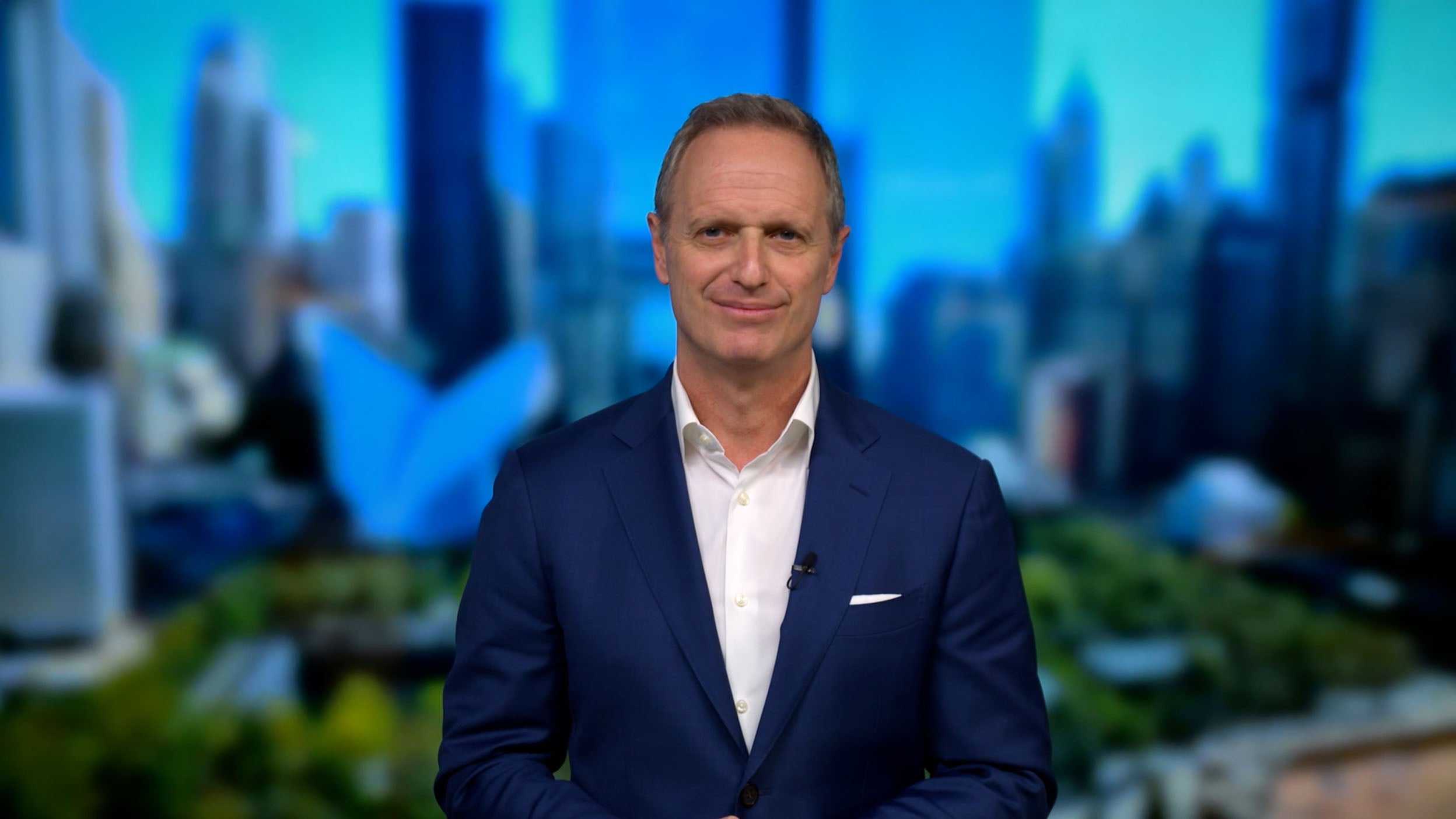
Equities Navigate uncertainty with low-volatility factor
With high concentration, heightened volatility, and growing downside risk, a low volatility strategy can help navigate these market challenges.
There’s a great deal of uncertainty in markets these days and investors are wondering what some proposals from the Trump administration may mean for inflation. Since some commodities may be impacted by the new policies, commodities can be an efficient inflation hedge as well as a good hedge in uncertain times. Here’s my view on four policies that may impact inflation and commodities.
1. Tariffs. Tariffs are basically a tax on the global economy. When they’re placed on foreign goods coming into the US, the goods become more expensive for Americans. If we still buy them — and don’t switch to American-made, non-tariffed goods — we’ll see price inflation. Investors may want to consider our commodity ETF, PDBC, the Invesco Optimum Yield Diversified Commodity Strategy No K-1 ETF, to hedge this inflation risk. On the other hand, if tariffed countries retaliate and stop purchasing US goods, like agriculture, this may cause prices for those goods to decrease, so the impact would be deflationary.
2. Sanctions. Energy sanctions on countries like Russia and Iran can remove production from global supplies, causing energy prices to rise. Strictly enforcing these sanctions or sanctioning the buyers of the energy could also push prices higher causing further inflation in energy. PDBC could be used to hedge this inflationary risk in energy and precious metals, which are used as a safe haven against volatile actions, like sanctions.
3. Peace. We all want world peace and hopefully some conflicts will end soon. If they do, the geopolitical premiums currently built into prices may decrease. So, peace is likely to be deflationary. The rebuilding of the countries involved in the conflicts will require large investments and many commodities like industrial metals, which could possibly cause some inflation. It would be a secondary impact, however. EVMT, the Invesco Electric Vehicle Metals Commodity Strategy No K-1 ETF, provides exposure to a range of metals used to produce electric vehicles and may help investors participate in upward moves as these countries rebuild.
4. Migrant deportations. If the US deports migrants working in agriculture there could be inflation for livestock like cattle and hogs and some of the other agriculture products. PDBA, the Invesco Agriculture Commodity Strategy No K-1 ETF, gives investors access to all three agriculture sectors: grains, soft commodities, and livestock, and could hedge for this type of inflation.
Uncertainty can be unsettling for investors. Commodities may make sense in these times as a hedge against inflation and uncertainty. There also may be commodity opportunities from new policies.
Learn more about PDBC, EVMT, and PDBA in the featured product and resource section below this video.
Important Information
Before investing, investors should carefully read the prospectus/summary prospectus and carefully consider the investment objectives, risks, charges, and expenses. For this and more complete information about the Fund call 800-983-0903 or visit Prospectuses and Reports | Invesco US for the prospectus/summary prospectus
Not a Deposit Not FDIC Insured Not Guaranteed by the Bank May Lose Value Not Insured by any Federal Government Agency
All investing involves risk, including the risk of loss.
There are risks involved with investing in ETFs, including possible loss of money. Actively managed ETFs do not necessarily seek to replicate the performance of a specified index. Actively managed ETFs are subject to risks similar to stocks, including those related to short selling and margin maintenance. Ordinary brokerage commissions apply. The Fund's return may not match the return of the Index. The Fund is subject to certain other risks. Please see the current prospectus for more information regarding the risk associated with an investment in the Fund.
The Fund is subject to management risk because it is an actively managed portfolio. The investment techniques and risk analysis used by the portfolio managers may not produce the desired results.
Risks of futures contracts include: an imperfect correlation between the value of the futures contract and the underlying commodity; possible lack of a liquid secondary market; inability to close a futures contract when desired; losses due to unanticipated market movements; obligation for the Fund to make daily cash payments to maintain its required margin; failure to close a position may result in the Fund receiving an illiquid commodity; and unfavorable execution prices.
In pursuing its investment strategy, particularly when "rolling" futures contracts, the Fund may engage in frequent trading of its portfolio securities, resulting in a high portfolio turnover rate.
Commodity-linked notes may involve substantial risks, including risk of loss of a significant portion of principal and risks resulting from lack of a secondary trading market, temporary price distortions, and counterparty risk.
Swaps involve greater risks than direct investments. Swaps are subject to leveraging, liquidity and counterparty risks, and therefore may be difficult to value. Adverse changes in the value or level of the swap can result in gains or losses that are substantially greater than invested, with the potential for unlimited loss.
Derivatives may be more volatile and less liquid than traditional investments and are subject to market, interest rate, credit, leverage, counterparty and management risks. An investment in a derivative could lose more than the cash amount invested.
To qualify as a regulated investment company (“RIC”), the Fund must meet a qualifying income test each taxable year. Failure to comply with the test would have significant negative tax consequences for shareholders. The Fund believes that income from futures should be treated as qualifying income for purposes of this test, thus qualifying the Fund as a RIC. If the IRS were to determine that the Fund’s income is derived from the futures did not constitute qualifying income, the Fund likely would be required to reduce its exposure to such investments in order to maintain its RIC status.
The Fund's strategy of investing through its Subsidiary in derivatives and other financially-linked instruments whose performance is expected to correspond to the commodity markets may cause the Fund to recognize more ordinary income. Particularly in periods of rising commodity values, the Fund may recognize higher-than-normal ordinary income. Investors should consult with their tax advisor and review all potential tax considerations when determining whether to invest.
Leverage created from borrowing or certain types of transactions or instruments may impair liquidity, cause positions to be liquidated at an unfavorable time, lose more than the amount invested, or increase volatility.
The Fund may hold illiquid securities that it may be unable to sell at the preferred time or price and could lose its entire investment in such securities.
The Fund currently intends to effect creations and redemptions principally for cash, rather than principally in-kind because of the nature of the Fund's investments. As such, investments in the Fund may be less tax efficient than investments in ETFs that create and redeem in-kind.
PDBA
The Fund is non-diversified and may experience greater volatility than a more diversified investment.
Risks of investing the agriculture sector include but are not limited to general economic conditions or cyclical market patterns negatively affecting supply and demand; legislative or regulatory developments related to food safety, the environment, and other governmental policies; environmental damage, depletion of resources, and mandated expenditures for safety and pollution control devices; and increased competition. The Fund’s performance is linked to the daily spot price performance of certain agriculture commodities, which may be highly volatile and can change quickly and unpredictably due to several factors, including the supply and demand of each commodity, environmental or labor costs, political, legal, financial, accounting and tax matters and other events the Fund cannot control. Increased competition caused by economic recession, labor difficulties and changing consumer tastes and spending can affect the demand for agricultural products, and consequently the value of investments in that sector. As a result, the price of an agricultural commodity could decline, which would adversely affect the Fund if it held that commodity and may materially adversely affect Fund performance.
DBIQ Diversified Agriculture Index is a rules-based index composed of futures contracts on some of the most liquid and widely traded agricultural commodities. The excess return represents the return over the T-bill return.
The S&P GSCI Agriculture Index is a world production-weighted index of certain agricultural commodities in the world economy including futures contracts for wheat (Chicago wheat), red wheat (Kansas wheat), corn, soybeans, cotton, sugar, coffee and cocoa.
EVMT
There are risks involved with investing in ETFs, including possible loss of money. Actively managed ETFs do not necessarily seek to replicate the performance of a specified index. Actively managed ETFs are subject to risks similar to stocks, including those related to short selling and margin maintenance. Ordinary brokerage commissions apply. The Fund's return may not match the return of the Index. The Fund is subject to certain other risks. Please see the current prospectus for more information regarding the risk associated with an investment in the Fund.
Investments linked to prices of commodities may be considered speculative. Significant exposure to commodities may subject the Fund to greater volatility than traditional investments. The value of such instruments may be volatile and fluctuate widely based on a variety of factors. Prices fluctuations may be quick and significant and may not correlate to price movements in other asset classes.
Derivatives may be more volatile and less liquid than traditional investments and are subject to market, interest rate, credit, leverage, counterparty and management risks. An investment in a derivative could lose more than the cash amount invested.
Risks of futures contracts include: an imperfect correlation between the value of the futures contract and the underlying commodity; possible lack of a liquid secondary market; inability to close a futures contract when desired; losses due to unanticipated market movements; obligation for the Fund to make daily cash payments to maintain its required margin; failure to close a position may result in the Fund receiving an illiquid commodity; and unfavorable execution prices.
In pursuing its investment strategy, particularly when "rolling" futures contracts, the Fund may engage in frequent trading of its portfolio securities, resulting in a high portfolio turnover rate.
Investments focused in a particular sector, such as metals, are subject to greater risk, and are more greatly impacted by market volatility, than more diversified investments. Investments in metals may be highly volatile and can change quickly and unpredictably due to several factors, including the supply and demand of each metal, environmental or labor costs, political, legal, financial, accounting and tax matters and other events the Fund cannot control. As a result, the price of a metal could decline, adversely affecting the Fund’s performance.
Thematic investing involves the risk that the electric vehicle theme is out of favor, or that the metals chosen to capitalize on that theme underperform the market. The Fund invests in instruments linked to the metals used in the production of electric vehicles, and performance may suffer if the metals do not benefit from the development of the electric vehicle theme. While the Fund will not invest directly in electric vehicle and other related companies, the performance of its commodity-based strategy may be indirectly impacted by the performance of such companies.
Swaps involve greater risks than direct investments. Swaps are subject to leveraging, liquidity and counterparty risks, and therefore may be difficult to value. Adverse changes in the value or level of the swap can result in gains or losses that are substantially greater than invested, with the potential for unlimited loss.
Commodity-linked notes may involve substantial risks, including risk of loss of a significant portion of principal and risks resulting from lack of a secondary trading market, temporary price distortions, and counterparty risk.
The Fund's investments in futures contracts will cause it to be deemed to be a commodity pool, subjecting it to regulation under the Commodity Exchange Act and Commodity Futures Trading Commission (CFTC) rules. The Adviser, a registered Commodity Pool Operator (CPO) and commodity trader advisor (CTA), and the Fund will be operated in accordance with CFTC rules. Registration as a CPO or CTA subjects the Adviser to additional laws, regulations, and enforcement policies; all of which could increase compliance costs, affect the operations and financial performance. Registration as a commodity pool may have negative effects on the ability of the Fund to engage in its planned investment program.
A decision as to whether, when and how to use options involves the exercise of skill and judgment and even a well-conceived option transaction may be unsuccessful because of market behavior or unexpected events. The prices of options can be highly volatile, and the use of options can lower total returns.
Exchange-traded notes (ETNs) are subject to credit risk of the issuer, and the value of the ETN may drop due to a downgrade in the issuer’s credit rating, despite the underlying market benchmark or strategy remaining unchanged.
Counterparty risk is the risk that the other party to the contract will not fulfill its contractual obligations, which may cause losses or additional costs.
Leverage created from borrowing or certain types of transactions or instruments may impair liquidity, cause positions to be liquidated at an unfavorable time, lose more than the amount invested, or increase volatility.
To qualify as a regulated investment company (“RIC”), the Fund must meet a qualifying income test each taxable year. Failure to comply with the test would have significant negative tax consequences for shareholders. The Fund believes that income from futures should be treated as qualifying income for purposes of this test, thus qualifying the Fund as a RIC. If the IRS were to determine that the Fund’s income is derived from the futures did not constitute qualifying income, the Fund likely would be required to reduce its exposure to such investments in order to maintain its RIC status. The Fund may hold illiquid securities that it may be unable to sell at the preferred time or price and could lose its entire investment in such securities.
The Fund’s strategy of investing through its Subsidiary in derivatives and other financially-linked instruments whose performance is expected to correspond to the commodity markets may cause the Fund to recognize more ordinary income. Particularly in periods of rising commodity values, the Fund may recognize higher-than-normal ordinary income. Investors should consult with their tax advisor and review all potential tax considerations when determining whether to invest
The Fund currently intends to effect creations and redemptions principally for cash, rather than principally in-kind because of the nature of the Fund's investments. As such, investments in the Fund may be less tax efficient than investments in ETFs that create and redeem in-kind.
Because the Subsidiary is not registered under the Investment Company Act of 1940, as amended (1940 Act), the Fund, as the sole investor in the Subsidiary, will not have the protections offered to investors in U.S. registered investment companies.
The Fund is subject to management risk because it is an actively managed portfolio. The investment techniques and risk analysis used by the portfolio managers may not produce the desired results.
The Fund may hold illiquid securities that it may be unable to sell at the preferred time or price and could lose its entire investment in such securities.
The Fund is non-diversified and may experience greater volatility than a more diversified investment.
Shares are not individually redeemable, and owners of the Shares may acquire those Shares from the Fund and tender those Shares for redemption to the Fund in Creation Unit aggregations only, typically consisting of 10,000, 20,000, 25,000, 50,000, 75,000, 80,000, 100,000, or 150,000 Shares.
Invesco Distributors, Inc. 03/25 NA 4250636
Since some commodities may be impacted by the new administration's policies, they can be an efficient inflation hedge as well as a hedge in uncertain times.
ETFs to consider based on our soft-landing outlook with growth slowing near term but reaccelerating later in the year.
Our monthly report on what’s driving the energy, agriculture, and metals markets and ETFs that may capitalize on the trends.
Diversify your portfolios and hedge against inflation with strategic investments in commodities.
Gain exposure to the rapidly evolving digital economy and position your portfolio for the future with Invesco's innovative ETFs.

With high concentration, heightened volatility, and growing downside risk, a low volatility strategy can help navigate these market challenges.

Tariff, trade war, and market volatility headlines can make investors fearful. It's unsettling, but fear can also create opportunities.

Many international markets are undervalued compared to the US market, presenting the potential for higher returns.
Important information
NA4312335
There are risks involved with investing in ETFs, including possible loss of money. Index-based ETFs are not actively managed. Actively managed ETFs do not necessarily seek to replicate the performance of a specified index. Both index-based and actively managed ETFs are subject to risks similar to stocks, including those related to short selling and margin maintenance. Ordinary brokerage commissions apply. The Fund's return may not match the return of the Index. The Fund is subject to certain other risks. Please see the current prospectus for more information regarding the risk associated with an investment in the Fund.
This link takes you to a site not affiliated with Invesco. The site is for informational purposes only. Invesco does not guarantee nor take any responsibility for any of the content.